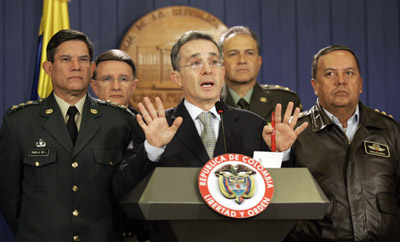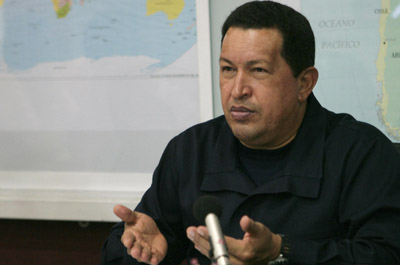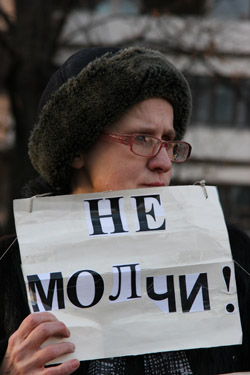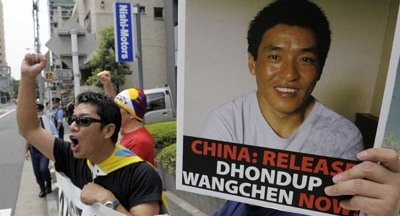
In the Americas, Big Brother is watching reporters
By Carlos Lauría The topic being investigated by two Colombian reporters was explosive enough that it required unusual security. Fearful that the subjects would learn prematurely of the story, the reporters took separate notes, which they did not share and which they later destroyed. They didn’t communicate by telephone or e-mail, and they met only…
Attacks on the Press 2009: Venezuela
Top Developments• Regulators strip licenses from critical broadcasters.• Government wages politicized investigation into Globovisión. Key Statistic 34: Private radio and television stations pulled from the air. After scoring a major victory in a February referendum that granted indefinite presidential re-election, President Hugo Chávez Frías and his government intensified their years-long crackdown on the private media. The government’s…

‘Suddenly,’ Chávez is on the radio (yet again)
Venezuelan President Hugo Chávez Frías has used cadenas—nationwide radio and television addresses that preempt programming on all stations—to challenge the private media’s news coverage and amplify the government’s voice. In his radio and TV call-in program, “Aló, Presidente” (Hello, President), Chávez often lambastes critics in the media and the political opposition.
Venezuela bars RCTV, 5 other stations from cable, satellite
New York, January 25, 2010—Venezuelan regulators have ordered cable and satellite operators to stop carrying one of the country’s best known broadcasters, RCTV International, along with five other stations, alleging that the broadcasters violated a requirement to air President Hugo Chávez’s speeches. The Committee to Protect Journalists urged Venezuelan authorities today to allow all of…

Philippines, Somalia fuel record death toll
CPJ survey finds at least 68 journalists killed in 2009 New York, December 17, 2009—At least 68 journalists worldwide were killed for their work in 2009, the highest yearly tally ever documented by the Committee to Protect Journalists, the organization said in its year-end analysis. The record toll was driven in large part by the…

CPJ’s 2009 prison census: Freelance journalists under fire
New York, December 8, 2009—Freelancers now make up nearly 45 percent of all journalists jailed worldwide, a dramatic recent increase that reflects the evolution of the global news business, the Committee to Protect Journalists said today. In its annual census of imprisoned journalists, CPJ found a total of 136 reporters, editors, and photojournalists behind bars…
Video Report: Behind Bars But Not Alone
In this video companion to CPJ’s annual census of imprisoned journalists, Deputy Director Robert Mahoney describes how international advocacy can make a difference in winning the freedom of jailed reporters, editors, photojournalists, and bloggers. (3:45) Read the special report “Freelancers Under Fire” and view our database of journalists in prison.
CPJ speaks to jailed Venezuelan journalist Gustavo Azócar
On Monday, Venezuelan Judge José Oliveros announced that he would begin a new trial against journalist Gustavo Azócar, an outspoken Chávez critic, who has spent two months in prison without being sentenced. Oliveros, the local press reported, also upheld a decision to hold the television host and blogger in custody throughout the new trial. The…
Critical Venezuelan journalist arrested on contempt of court
Venezuelan Judge Fanny Yasmina Becerra ordered the arrest of journalist Gustavo Azócar on July 29, 2009, stating that he violated the conditions of his 2006 parole on charges of illegal acquisition of wealth and fraud by publicly commenting on his case. Táchira state authorities took Azócar into custody at 10:30 p.m., and drove him to…